Signs of a Faulty Air Compressor Check Valve

An air compressor check valve is an essential component in maintaining the efficiency and functionality of an air compressor system. It is responsible for controlling the flow of compressed air and preventing backflow, ensuring that the system operates smoothly. However, like any other mechanical part, a check valve can malfunction over time.
One of the most common signs of a faulty air compressor check valve is air leaking from the unloader valve. When the check valve fails to close properly, compressed air can escape through the unloader valve, causing a noticeable hissing sound. This can lead to a decrease in overall system pressure, affecting the performance of air-operated tools and equipment.
Another indication of a faulty check valve is when the air compressor struggles to build or maintain pressure. A malfunctioning check valve may prevent the compressor from reaching the desired pressure level, resulting in prolonged and inefficient operation. This can also lead to increased energy consumption and higher operating costs.
In some cases, a faulty check valve can cause the air compressor motor to continuously run without shutting off. This is known as “overpressurization” and can be dangerous if not addressed promptly. Overpressurization can put excessive strain on the motor and other components of the air compressor, leading to premature wear and potential system failure.
If you notice any of these signs, it is essential to inspect and replace the faulty check valve to ensure the proper functioning of your air compressor system. Regular maintenance and inspection of the check valve can help identify and address any potential issues before they escalate, improving the longevity and efficiency of the system.
Understanding Air Compressor Check Valves
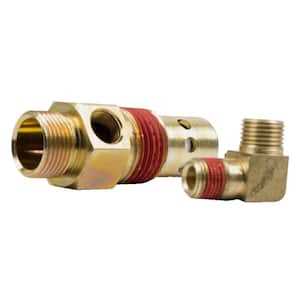
What is an Air Compressor Check Valve?
An air compressor check valve is a mechanical device that allows air to flow in only one direction, preventing backflow of compressed air in the opposite direction. It is a crucial component in the air compressor system as it ensures efficient and safe operation.
How Does an Air Compressor Check Valve Work?
An air compressor check valve typically consists of a valve body, a valve flap, and a spring. When the air compressor is running, the valve flap is pushed open by the force of the compressed air, allowing air to flow into the system. When the compressor stops, the spring closes the valve flap to prevent air from flowing back into the compressor.
Importance of Air Compressor Check Valves
A properly functioning air compressor check valve is essential for the overall performance and safety of the air compressor system. It prevents the compressor from losing pressure when it is not in operation and prevents damage to the compressor components from backflow of high-pressure air.
By maintaining a one-way flow of air, the check valve also helps to maintain consistent air pressure and reduce air loss in the system. This improves the efficiency of the compressor and helps to save energy.
Signs of a Faulty Air Compressor Check Valve
There are several signs that indicate a faulty air compressor check valve. These include irregular pressure build-up, air leaks, excessive compressor cycling, and increased energy consumption. If any of these signs are observed, it is important to inspect and replace the check valve to prevent further damage to the air compressor system.
Troubleshooting and Maintenance
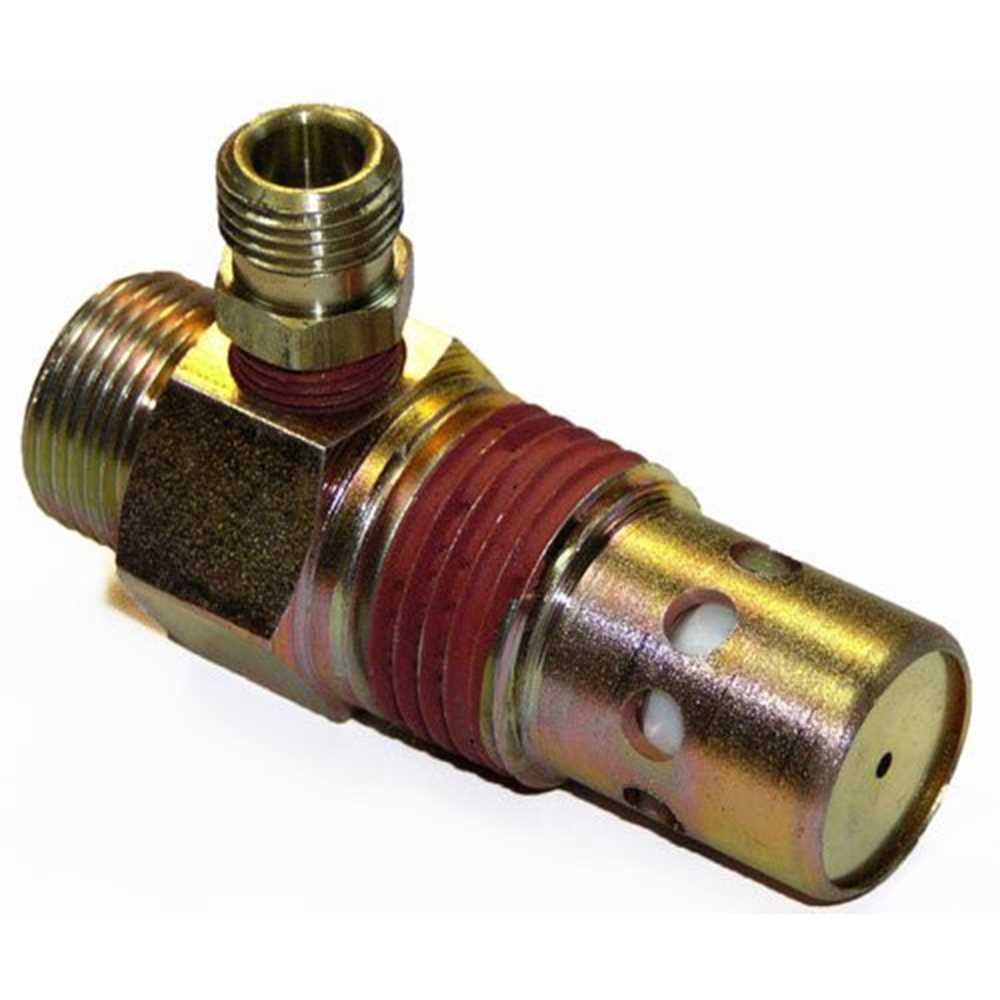
Regular maintenance and inspection of the air compressor check valve are important to ensure its proper functioning. Cleaning the valve and checking for any obstructions or damage can help prevent issues. If the valve is damaged or fails to function correctly, it should be replaced with a new one to maintain the efficiency and safety of the air compressor system.
It is also important to follow the manufacturer’s instructions and guidelines for maintaining the air compressor and its check valve. This includes regular oil changes, proper filtration of air intake, and checking for any air leaks or loose connections in the system.
Overall, understanding the role and importance of an air compressor check valve is crucial in maintaining the efficiency, reliability, and longevity of the entire air compressor system.
What is an Air Compressor Check Valve?
An air compressor check valve is a vital component of an air compressor system. It is a one-way valve that allows air to flow in only one direction, preventing backflow and maintaining pressure in the system. The check valve is typically located between the air compressor pump and the air receiver tank.
Function
The primary function of an air compressor check valve is to prevent air from flowing back into the compressor pump when it is not running. This is particularly important because it helps maintain pressure in the system and prevents the compressor from losing its prime. When the compressor is turned off, the check valve closes, ensuring that air does not flow back into the pump and cause damage.
How it works
The operation of an air compressor check valve is relatively simple. When the compressor pump is running, air is drawn in and compressed. The compressed air then flows through the check valve and into the air receiver tank. When the compressor stops, the check valve closes, preventing air from flowing back into the pump.
Signs of a faulty check valve
There are several signs that indicate a faulty air compressor check valve. One common sign is a noticeable decrease in the pressure of the compressed air. This could be due to a faulty check valve not fully closing or not sealing properly. Another sign is excessive noise or vibration coming from the compressor. This could indicate a worn or damaged check valve that needs to be replaced.
In conclusion, an air compressor check valve is an essential component of an air compressor system. Its primary function is to prevent backflow and maintain pressure in the system. Understanding how the check valve works and being aware of the signs of a faulty valve can help ensure the proper functioning of the air compressor.
Importance of a Properly Functioning Air Compressor Check Valve
Ensure Efficient Operation
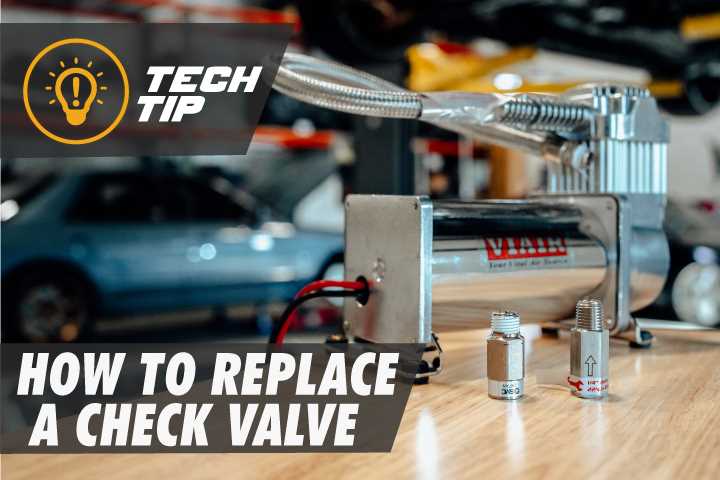
A properly functioning air compressor check valve is crucial for ensuring efficient operation of the air compressor system. The check valve is responsible for allowing the flow of compressed air in one direction while preventing it from flowing in the opposite direction. This ensures that the compressed air is effectively utilized and does not leak out or get wasted.
Prevent Air Leakage
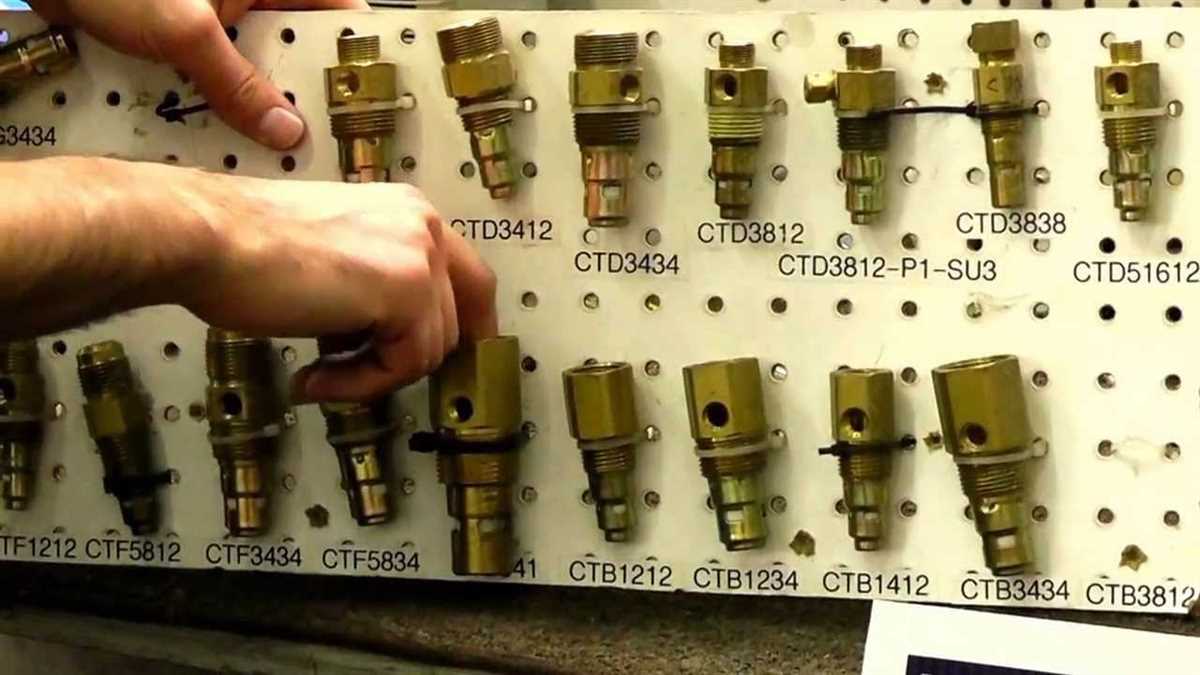
A faulty check valve can lead to air leakage, which can significantly affect the performance of the air compressor system. Air leakage not only wastes precious compressed air, but it also puts a strain on the compressor, leading to increased energy consumption and reduced overall efficiency. By ensuring that the check valve is working properly, you can prevent air leakage and maintain the desired pressure levels within the system.
Protect the Compressor
An air compressor check valve plays a vital role in protecting the compressor from damage. When the compressor shuts off, the check valve prevents the compressed air from flowing back into the compressor. This helps to prevent any potentially harmful pressure spikes and reduces the strain on the compressor’s components. With a properly functioning check valve, you can prolong the lifespan of the compressor and avoid costly repairs.
Ensure Safety
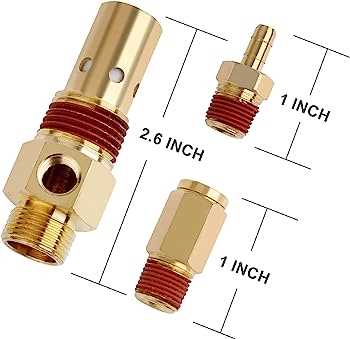
A malfunctioning air compressor check valve can pose a safety risk. In the event of a sudden failure or pressure surge, the check valve acts as a safety mechanism by preventing the compressed air from flowing back into the system. This prevents any potential accidents or injuries that could occur due to unexpected bursts of compressed air. Regularly inspecting and maintaining the check valve ensures optimal safety for both the operator and the equipment.
Save Money
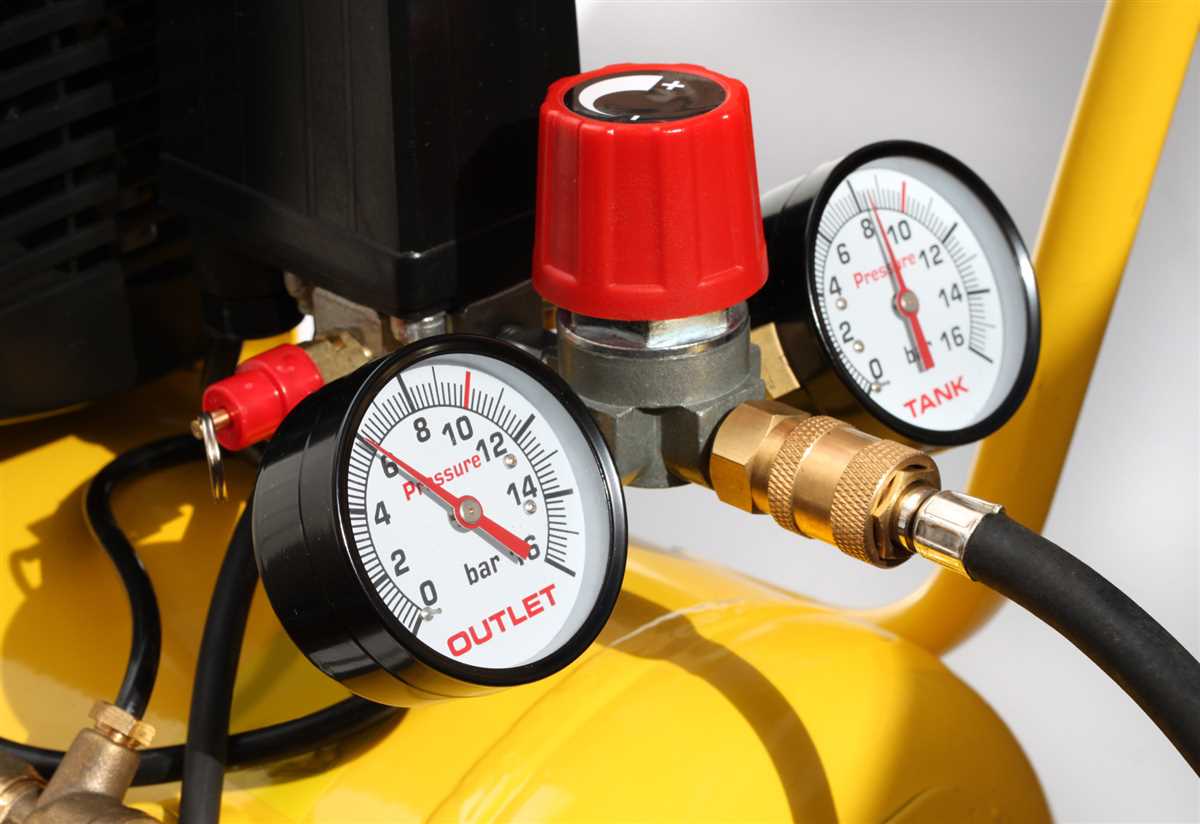
By ensuring that the air compressor’s check valve is working properly, you can save money in the long run. A faulty check valve can lead to increased energy consumption, higher maintenance costs, and reduced overall efficiency. By preventing air leakage and maintaining the desired pressure levels, you can improve the energy efficiency of the system, reduce unnecessary wear and tear on the compressor, and save on operational costs.
In conclusion, a properly functioning air compressor check valve is crucial for ensuring efficient operation, preventing air leakage, protecting the compressor, ensuring safety, and saving money. Regular maintenance and inspection of the check valve can help identify any issues early on and prevent any potential problems or hazards. Investing in a high-quality check valve and promptly addressing any faults or malfunctions is essential for the optimal performance and longevity of the air compressor system.
Air Leaking from the Couplers
One common sign of a faulty air compressor check valve is air leaking from the couplers. Couplers are the fittings that connect the air compressor to the pneumatic tools or equipment. When the check valve is not functioning correctly, it can cause air to leak from the couplers, resulting in reduced airflow and lower pressure. This can lead to inefficient operation of pneumatic tools and equipment.
If you notice air leaking from the couplers, it is important to inspect the check valve for any signs of damage or wear. The check valve is responsible for allowing air to flow in one direction and preventing it from flowing back into the compressor. If the check valve is faulty, it may not seal properly, allowing air to leak out of the couplers.
There are several possible reasons why air may be leaking from the couplers. One possibility is that the check valve is worn out or damaged. Over time, the check valve can become worn or damaged due to consistent use and exposure to high pressure. Another possibility is that there is debris or dirt stuck in the check valve, preventing it from sealing properly. In some cases, the problem may be with the couplers themselves. If the couplers are old or worn out, they may not create a tight seal, leading to air leakage.
To fix the issue of air leaking from the couplers, it is important to first identify the root cause. If the check valve is the problem, it may need to be replaced. It is also a good idea to clean the check valve and couplers to remove any dirt or debris that may be causing the air leakage. If the couplers are worn out, they should be replaced to ensure a tight seal. Regular maintenance and inspection of the air compressor and its components can help prevent issues with air leakage and ensure optimal performance.
Difficulty in Building and Maintaining Pressure
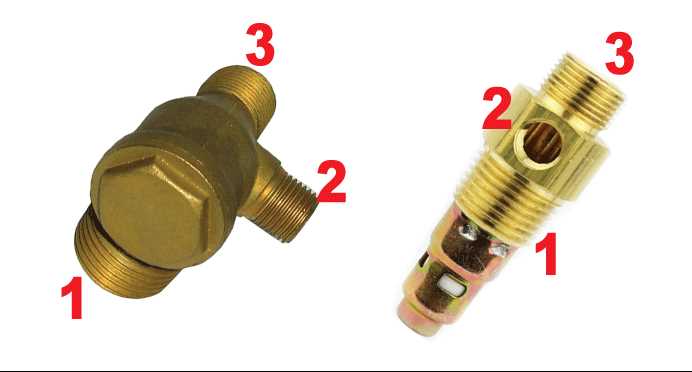
One of the signs of a faulty air compressor check valve is difficulty in building and maintaining pressure. The check valve plays a crucial role in ensuring that compressed air flows in one direction and prevents backflow. If the check valve is faulty, it may not close properly, leading to air leakage and difficulty in maintaining pressure within the compressor system.
A faulty check valve can cause a decrease in the maximum pressure that the compressor can reach. This means that the compressor may struggle to build up sufficient pressure, resulting in slower operation and reduced efficiency. You may notice that it takes longer than usual for the compressor to reach the desired pressure level, and it may struggle to maintain that pressure once reached.
When the check valve is not functioning properly, compressed air may escape through the valve when the compressor is turned off. This can result in a gradual decrease in pressure even when the compressor is not in use. If you constantly find yourself needing to refill the air tank or adjust the pressure settings, it could be a sign that the check valve is faulty.
In some cases, a faulty check valve may also cause the pressure relief valve to open more frequently. The pressure relief valve is designed to release excess pressure to prevent damage to the compressor. However, if the check valve is not closing properly, it can cause an excessive buildup of pressure, triggering the pressure relief valve unnecessarily.
Overall, difficulty in building and maintaining pressure is a clear indication of a faulty air compressor check valve. If you experience any of these symptoms, it is crucial to inspect and replace the check valve to ensure proper functioning of the compressor system.
Unusual Noises
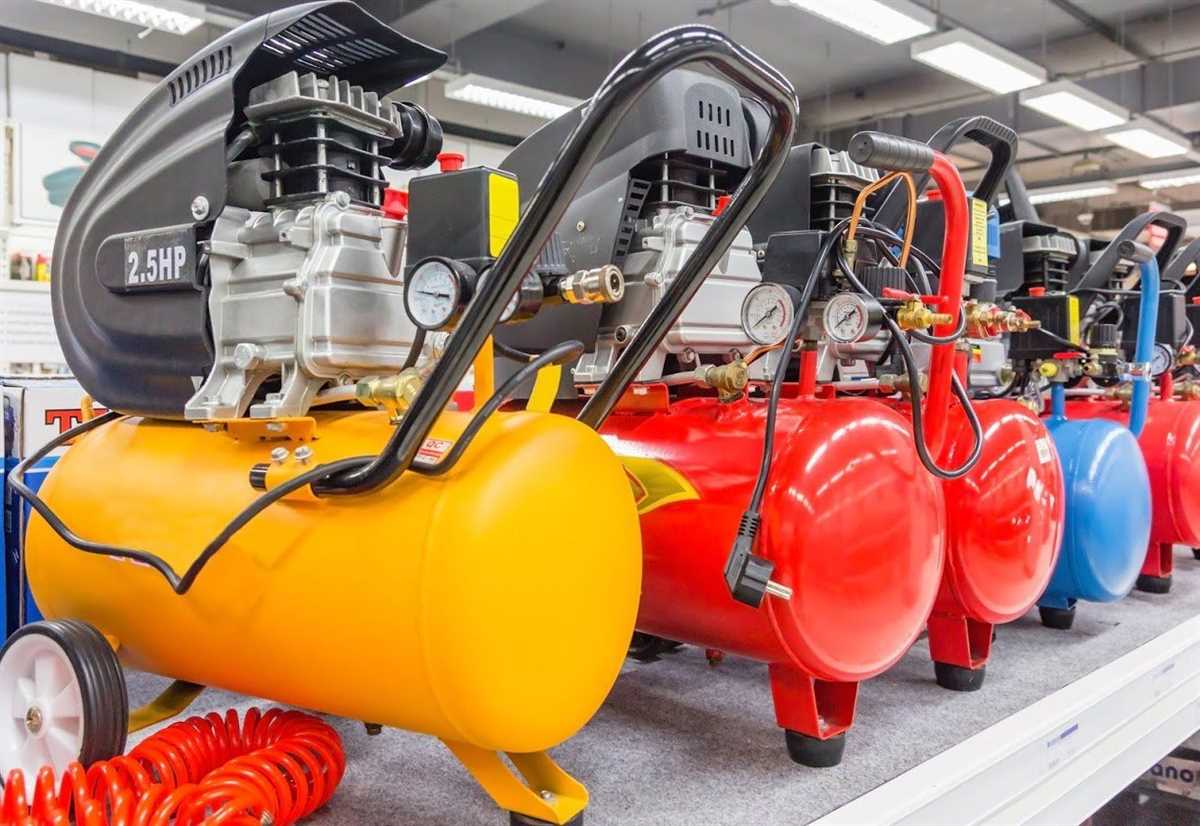
One common sign of a faulty air compressor check valve is the presence of unusual noises. When the check valve is not functioning correctly, it can cause the air compressor to make strange sounds during operation. These noises can include grinding, whistling, hissing, or squealing sounds.
Grinding noises may indicate that the check valve is not opening or closing properly, causing the air to flow irregularly and create friction. Whistling sounds can suggest that there is a leak in the valve, allowing air to escape and creating a high-pitched noise. Hissing noises are often a sign of a damaged or worn-out check valve, as air can leak through the valve and produce a continuous hissing sound.
Squealing sounds can also signify a faulty check valve, usually due to a lack of lubrication. When the valve is not properly lubricated, the metal components can rub against each other, causing the squealing noise. It is essential to address these unusual noises promptly to prevent further damage to the air compressor and ensure its efficient operation.
Excessive Vibrations
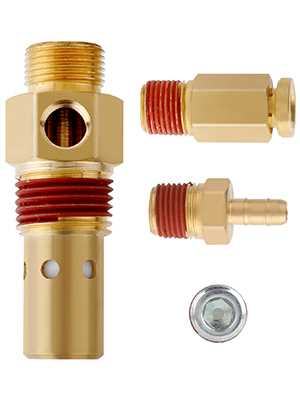
Excessive vibrations are one of the signs that indicate a faulty air compressor check valve. The check valve is responsible for regulating the flow of air in the compressor, and when it becomes faulty, it can cause the compressor to vibrate excessively.
These vibrations can be felt in the entire system and can even cause the compressor to move or shake. This can lead to further damage to other components of the air compressor, such as the motor or the air tank.
Excessive vibrations can be caused by a variety of reasons, including a worn-out or damaged check valve, improper installation, or a build-up of debris or dirt in the valve. It is important to address this issue as soon as possible to prevent further damage to the compressor and ensure its proper functioning.
If you notice excessive vibrations in your air compressor, it is recommended to consult a professional technician or mechanic. They will be able to diagnose the problem and provide you with the necessary repairs or replacements needed to fix the faulty check valve.
Additionally, regular maintenance and inspections can help prevent or identify any potential issues with the check valve before they lead to excessive vibrations. This includes cleaning and inspecting the valve regularly, as well as checking for any signs of wear or damage.
In conclusion, excessive vibrations are a clear sign of a faulty air compressor check valve. Paying attention to these vibrations and addressing the issue promptly can help prevent further damage and ensure the proper functioning of the compressor.
Irregular Cycling of the Compressor
One sign of a faulty air compressor check valve is irregular cycling of the compressor. Normally, the air compressor cycles on and off as it reaches the set pressure level. However, if the check valve is faulty, the compressor may cycle irregularly, turning on and off more frequently than usual. This can lead to excessive wear and tear on the compressor motor and can also result in inefficient operation.
The irregular cycling of the compressor can be caused by a few different issues related to the check valve:
- If the check valve is stuck in the closed position, the compressor will continuously cycle on and off as the pressure builds up and triggers the pressure switch. This can put unnecessary strain on the compressor and shorten its lifespan.
- On the other hand, if the check valve is stuck in the open position, the compressor may not cycle at all, leading to a constant running of the motor. This can also result in overheating and potential damage to the compressor.
- In some cases, the check valve may be partially blocked or clogged, causing the compressor to cycle irregularly. This can happen if debris or dirt gets trapped in the valve, obstructing the flow of air.
- Another possible cause of irregular cycling is a faulty pressure switch. If the pressure switch is not functioning properly, it may send incorrect signals to the compressor, causing it to cycle at irregular intervals.
To determine if the irregular cycling of the compressor is caused by a faulty check valve, it is recommended to inspect and test the valve. This may involve disassembling and cleaning the valve, or replacing it altogether if necessary. Regular maintenance and inspection of the check valve can help prevent issues and ensure the smooth operation of the air compressor.
FAQ:
What are the signs of a faulty air compressor check valve?
Some signs of a faulty air compressor check valve include air leaking from the valve, a loss of pressure in the system, and the compressor running continuously.
Why is it important to have a functioning check valve in an air compressor?
Having a functioning check valve in an air compressor is important because it helps to maintain the pressure in the system and prevent air leaks, ensuring the proper functioning of the compressor.
How can I identify if my air compressor check valve is faulty?
You can identify a faulty air compressor check valve by checking for air leaks, monitoring the pressure in the system, and observing if the compressor is running continuously without building up pressure.
What should I do if I suspect that my air compressor check valve is faulty?
If you suspect that your air compressor check valve is faulty, you should first inspect it for any visible signs of damage or wear. If you notice any issues, you should replace the check valve with a new one.
Can a faulty air compressor check valve be repaired?
In most cases, a faulty air compressor check valve cannot be repaired and needs to be replaced with a new one. Repairing it may not be cost-effective and may not provide a long-term solution to the problem.
How often should I check the condition of my air compressor check valve?
You should check the condition of your air compressor check valve periodically, especially if you notice any signs of a faulty check valve, or during regular maintenance of your air compressor system.
Video:









